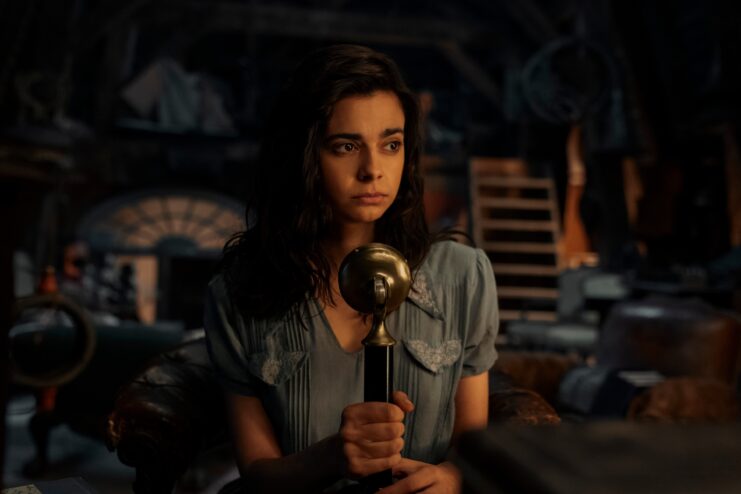In the television adaptation of Anthony Doerr’s Pulitzer Prize-winning novel “All the Light We Cannot See,” the poetic essence of the book dissipates, giving way to a lackluster and shallow rendition. Screenwriter Steven Knight and director Shawn Levy fail to capture the profound themes of the original work, opting instead for underdeveloped characters and on-the-nose metaphors. The horrors of World War II are depicted like generic superhero movies, complete with CGI Nazi stormtroopers and cheap thrills.
The story unfolds in the Nazi-occupied French town of St. Malo in 1944, focusing on two teenagers: Marie-Laure LeBlanc, a blind French girl searching for her missing father and uncle, and Werner Pfennig, a German orphan forced into the Nazis due to his radio expertise. Their lives are intertwined through a radio show hosted by the Professor, a character pivotal to the plot. However, the adaptation struggles to convey certain nuances, leading to a disconnect between the characters and the audience.
A central flaw lies in the performances, where actors seem to be playing caricatures rather than real individuals. The script, burdened with clunky exposition and overly elaborate language, adds to this artificiality. Moreover, the decision to have French characters speak with British accents while German characters are portrayed by actual German actors creates a jarring inconsistency. Mark Ruffalo’s inconsistent accent further detracts from the authenticity of the characters.
Levy’s directorial choices do little to salvage the adaptation. Marie-Laure, portrayed by Aria Mia Loberti, is presented through constant close-ups that emphasize her goodness but fail to delve into her complexity as a character. The recurring motif of “everything has a voice, you just have to listen” loses its meaning through excessive repetition, diminishing its impact on the audience. Louis Hofmann, playing Werner, delivers a monotonous performance, lacking depth even in intense situations. Felix Kammerer, in his brief appearances, stands out as a beacon of authenticity amidst the mediocrity, showcasing genuine emotion and expression.
“Lost Brilliance: All the Light We Cannot See” on Netflix ultimately falls short of capturing the novel’s brilliance. Despite the talent of the actors and the richness of the source material, the adaptation lacks depth and fails to leave a lasting impression. Levy and Knight’s vision for Doerr’s story lacks substance, resulting in a forgettable and unsatisfying viewing experience.

